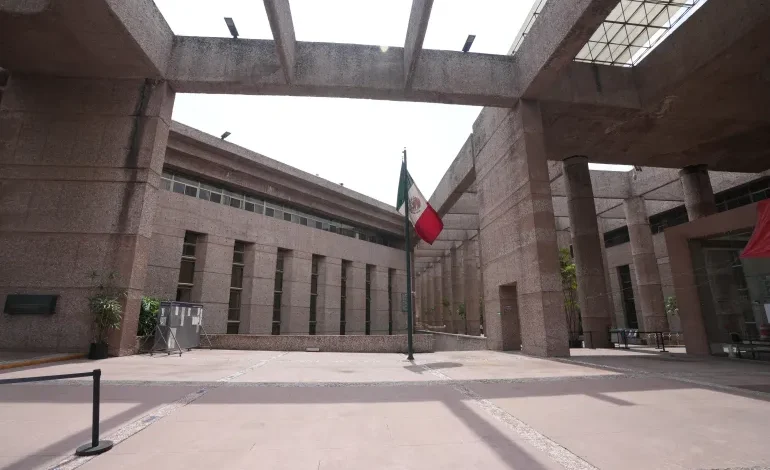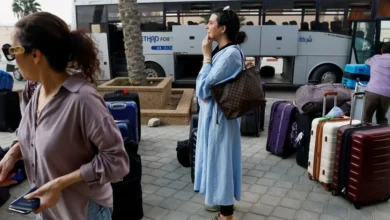Why are Mexico’s judges striking over AMLO’s proposed judicial reforms?

Thousands of judicial workers and judges have gone on strike this week in Mexico, as President Andres Manuel Lopez Obrador, known as AMLO, seeks to advance a massive overhaul of the country’s courts.
At the core of the proposed reforms is a controversial plan to elect federal judges — including Supreme Court appointees and electoral magistrates — by popular vote. Lopez Obrador has said the change is needed to root out corruption.
But critics see the move as the latest salvo in the ongoing tensions between Lopez Obrador and the judiciary.
Experts like Julio Rios Figueroa, a law professor at the Instituto Tecnologico Autonomo de Mexico (ITAM) in Mexico City, warn that the reforms could eat away at the government’s checks and balances, not to mention destabilise the justice system.
“It will create administrative chaos and uncertainty in many areas,” Rios Figueroa told Al Jazeera. “It will also end judicial independence and judicial autonomy in Mexico.”
He also warned that the reforms may allow Lopez Obrador’s Morena party to wield undue influence over the legal system.
After its sweep of the June 2 general elections, the Morena party has led a major push to pass constitutional changes before Lopez Obrador’s term expires at the end of September.
He is set to be succeeded by president-elect Claudia Sheinbaum, a Morena official who won the presidency with more votes than any candidate in Mexican history. That consolidation of power within the Morena party has some observers nervous about the continued independence of the judiciary.On Wednesday, Mexico’s association of federal judges and magistrates, which represents more than 1,400 judicial officers, joined the action. The association’s leader, Juana Fuentes, warned against the wide-ranging powers the reform would hand to Lopez Obrador and the Morena party.
“If this bill passes, we will be creating a regime of absolute power concentrated in one single person,” Fuentes told The New York Times earlier this week.
The strike came just days after lawmakers from the ruling Morena coalition presented a plan for the reforms in the lower house of Mexico’s congress. The party won a supermajority in that chamber in June, and it fell just short of a supermajority in the country’s senate.
What is in the latest proposal?
Under the plan, judicial candidates would be nominated by the executive, legislative and judicial branches of the government. They would then be vetted by special committees created by each branch to ensure they have the credentials needed to serve. Finally, the candidates would be put to a popular vote.
Speaking at a news conference last week, top Morena lawmaker Ignacio Mier said several changes had been made to an earlier version of the bill to allay criticism.
The plan would see staggered elections, with half the judges — including members of the Supreme Court — elected in 2025 and the other half elected in 2027.
“This guarantees legal certainty and a justice system that guarantees the people of Mexico access to justice,” Mier told reporters, as reported by the news agency Bloomberg.
Is reform needed?
Critics agree there is broad consensus that reform of Mexico’s criminal justice system is urgently needed: Victims of crime often face difficulties in seeking justice, and those accused of crimes are sometimes denied due process.
But legal experts like Rios Figueroa believe Lopez Obrador’s proposals are more populist politics than good policy.
“This judicial reform is incorrect, in the sense that it will not produce the results that the government says, according to a vast majority of experts and practitioners,” Rios Figueroa said.
He described the effort as “arbitrary”, saying Lopez Obrador’s allies are seeking to push it through “without real deliberation”.
Rios Figueroa identified several areas where Mexico’s justice system is in dire need of reform: He would like to see changes made to the public prosecutors’ offices, for instance, and an overhaul of the process by which individuals can seek protection for their constitutional rights.
The reform plan “does not touch” those areas, he said. They “are not the areas that are addressed in Mr Lopez Obrador’s proposal”.
Tyler Mattiace, an Americas researcher at the nonprofit Human Rights Watch, also said the reform plan that Lopez Obrador and his allies are advancing misses the mark.
“Their proposal will do nothing to address the true bottleneck in Mexico’s justice system: prosecutors’ willingness and capacity to investigate,” he wrote in a report published earlier this month.










